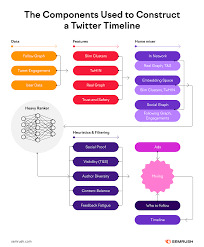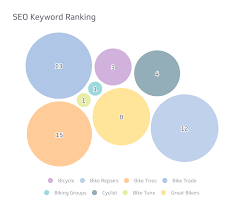Mastering Gatsby SEO: Elevate Your Website’s Visibility with Optimisation Strategies
The Power of Gatsby SEO: Optimising Your Website for Success
When it comes to building a successful online presence, search engine optimisation (SEO) plays a crucial role. Gatsby, a popular static site generator, offers powerful capabilities that can supercharge your SEO efforts and help your website rank higher in search engine results.
What is Gatsby?
Gatsby is a modern web development framework based on React that allows you to build blazing-fast websites and applications. Its unique selling point lies in its ability to generate static websites that are incredibly performant and SEO-friendly.
Why Choose Gatsby for SEO?
Here are some key reasons why Gatsby is an excellent choice for enhancing your website’s SEO:
- Speed: Gatsby generates static files that load quickly, providing a seamless user experience. Site speed is a crucial ranking factor for search engines like Google.
- Performance: With Gatsby’s optimised code and preloading capabilities, your website can deliver top-notch performance, which can positively impact your search engine rankings.
- Server-side Rendering (SSR): Gatsby offers SSR support, enabling search engines to crawl and index your content more efficiently, leading to better visibility in search results.
- SEO Plugins: Gatsby provides plugins such as gatsby-plugin-react-helmet that allow you to easily manage metadata like title tags, meta descriptions, and Open Graph tags for improved SEO.
Gatsby SEO Best Practices
To make the most of Gatsby’s SEO capabilities, consider implementing the following best practices:
- Keyword Research: Conduct thorough keyword research to identify relevant keywords for your content and incorporate them strategically throughout your website.
- Title Tags & Meta Descriptions: Use descriptive title tags and compelling meta descriptions to improve click-through rates from search engine results pages (SERPs).
- Optimised Images: Compress images for faster loading times and include descriptive alt text to improve accessibility and SEO.
- Sitemap Submission: Create an XML sitemap of your website’s pages and submit it to search engines like Google to ensure all content gets indexed.
In Conclusion
Gatsby’s robust features make it an ideal platform for boosting your website’s SEO performance. By leveraging its speed, performance, and SEO-friendly architecture, you can enhance your online visibility and attract more organic traffic. Invest in optimising your Gatsby site for SEO success and watch as your rankings soar!
Enhancing SEO with Gatsby: 6 Advantages for Superior Website Performance and Visibility
- Blazing-fast website speed enhances user experience and SEO rankings.
- Optimised code and preloading capabilities improve overall site performance.
- Server-side Rendering (SSR) support aids search engine crawling and indexing.
- SEO plugins like gatsby-plugin-react-helmet simplify metadata management for better SEO.
- Easy implementation of keyword research to strategically incorporate relevant terms.
- Efficient handling of title tags, meta descriptions, and image optimisation for enhanced visibility.
Challenges of Gatsby SEO: Navigating Complexity, Dynamic Content Limitations, and Plugin Dependencies
- Steep Learning Curve
- Limited Dynamic Content
- Plugin Dependency
- Build Time Overhead
- SEO Plugin Management
Blazing-fast website speed enhances user experience and SEO rankings.
Achieving blazing-fast website speed through Gatsby SEO not only elevates the user experience by providing swift and seamless navigation but also significantly boosts SEO rankings. Search engines like Google prioritise websites that load quickly and offer a smooth browsing experience to users. By harnessing Gatsby’s speed capabilities, websites can improve their performance metrics, leading to higher visibility in search engine results pages and ultimately driving more organic traffic to the site.
Optimised code and preloading capabilities improve overall site performance.
The optimised code and preloading capabilities offered by Gatsby SEO are instrumental in enhancing the overall performance of a website. By generating static files that load quickly and efficiently, Gatsby ensures a seamless user experience that not only pleases visitors but also aligns with search engine preferences for fast-loading websites. This improved site performance not only enhances user engagement but also contributes to better search engine rankings, ultimately driving more organic traffic to the site.
Server-side Rendering (SSR) support aids search engine crawling and indexing.
One of the key advantages of utilising Gatsby for SEO is its support for Server-side Rendering (SSR). This feature significantly benefits website owners by facilitating search engine crawling and indexing processes. With SSR support, Gatsby enables search engines to efficiently access and analyse website content, leading to improved visibility in search results. By leveraging this capability, businesses can enhance their online presence and attract a larger audience through enhanced search engine rankings.
SEO plugins like gatsby-plugin-react-helmet simplify metadata management for better SEO.
One of the key advantages of utilising Gatsby for SEO is the availability of plugins such as gatsby-plugin-react-helmet, which streamline the management of metadata for enhanced search engine optimisation. By leveraging this plugin, website owners can easily control crucial elements like title tags, meta descriptions, and Open Graph tags, ensuring that their content is optimised for better visibility in search engine results. This simplified metadata management process not only saves time but also empowers users to fine-tune their SEO strategies effectively, ultimately leading to improved search engine rankings and increased organic traffic.
Easy implementation of keyword research to strategically incorporate relevant terms.
One of the key advantages of utilising Gatsby for SEO is its seamless integration of keyword research into your website’s content strategy. With Gatsby, implementing relevant keywords strategically becomes a straightforward process, allowing you to optimise your site for search engines effectively. By easily incorporating these targeted terms throughout your content, you can enhance your website’s visibility and attract a more qualified audience interested in what your site has to offer.
Efficient handling of title tags, meta descriptions, and image optimisation for enhanced visibility.
One of the key advantages of using Gatsby for SEO is its efficient handling of crucial elements such as title tags, meta descriptions, and image optimisation. By seamlessly managing these aspects, Gatsby ensures that your website’s content is not only visually appealing but also optimised for enhanced visibility in search engine results. This proactive approach to SEO essentials helps improve your website’s ranking potential and increases the likelihood of attracting organic traffic, ultimately boosting your online presence and engagement with your target audience.
Steep Learning Curve
One notable drawback of utilising Gatsby for SEO is its steep learning curve. The intricate setup and configuration of Gatsby can pose a challenge for individuals who are new to the platform, potentially requiring a substantial investment of time and effort to grasp its nuances. This complexity may deter beginners from fully harnessing the SEO capabilities that Gatsby offers, hindering their ability to optimise their websites effectively for search engine visibility.
Limited Dynamic Content
One drawback of utilising Gatsby for SEO is its limitation in handling dynamic content effectively. Gatsby excels in generating static websites, which may pose challenges for projects that heavily rely on dynamic content. Websites with frequent updates or interactive elements may find Gatsby less suitable due to its static nature, potentially hindering the seamless integration of dynamic features that enhance user engagement and functionality. Consideration of the balance between static and dynamic content requirements is essential when deciding whether Gatsby is the optimal choice for a particular project’s SEO strategy.
Plugin Dependency
An important drawback of Gatsby SEO is the potential con of plugin dependency. While plugins offer valuable functionality and convenience, over-reliance on them can introduce compatibility issues or create a reliance on third-party code. This reliance may pose risks such as plugin updates affecting site performance or compatibility issues arising with future versions of Gatsby. It is essential for website owners to carefully evaluate the necessity and impact of each plugin to mitigate the risks associated with plugin dependency in Gatsby SEO implementations.
Build Time Overhead
One drawback of utilising Gatsby for SEO is the build time overhead it may introduce. Although Gatsby excels in producing fast-loading static websites, larger projects can experience extended build times due to the intricacies involved in the build process. This delay in generating the site can potentially impact productivity and hinder swift updates or changes to the website, especially for complex and extensive projects. It is essential for developers and website owners to consider this aspect when weighing the pros and cons of implementing Gatsby for SEO purposes.
SEO Plugin Management
When utilising Gatsby for SEO purposes, one potential drawback is the management of SEO plugins. This task may demand extra time and expertise to guarantee that the plugins are configured correctly for optimal performance and desired outcomes. Ensuring that the SEO plugins are effectively integrated and maintained within the Gatsby framework can be a more intricate process compared to traditional content management systems, requiring a careful balance of technical proficiency and strategic insight to maximise their effectiveness in enhancing search engine visibility.








